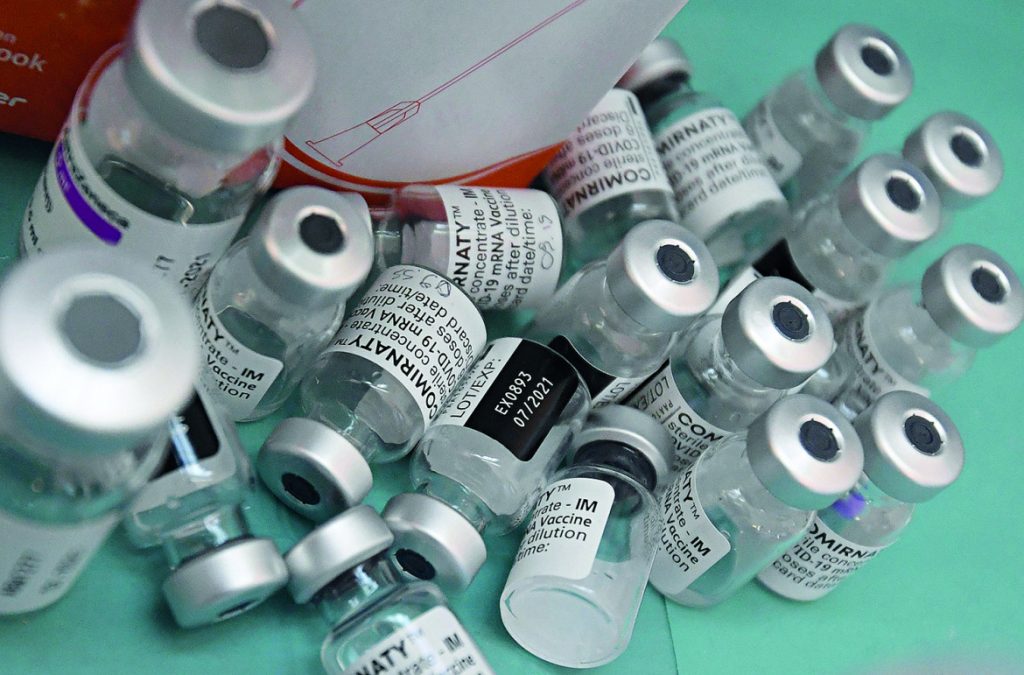
Deliveries have not taken place, the European Union is suing AstraZeneca
The Commission, with the unanimous approval of the 27 member states, launched a court action against AstraZeneca last Friday, reducing vaccine supplies compared to the contract signed with the European Union. Brussels thus implements the threat that has been raised for weeks, after it opened the dispute settlement procedure with AstraZeneca on March 19. As for the committee, “the terms of the contract, or parts of it, were not respected, and the drug company was unable to present a reliable strategy to ensure that the doses were delivered on time.” AstraZeneca responded yesterday morning, the producer “regrets” the attack on the legal seat, assuring that he “respected the preventive procurement agreement” and confirming that he will “defend himself in court”: “We believe the conflict is without objection and we hope that the dispute will be resolved as soon as possible.”
What is the goal of the European Union? Health Commissioner, Stella Kyriakides, says that “the priority is to ensure that vaccines are delivered to protect the health of citizens.” AstraZeneca is making an effort in this direction: the company promised 50 million doses by the end of April “in line with expectations”. The precautionary contract signed between the European Union, on behalf of 27, and AstraZeneca – which was released weeks in advance, but with numerous cancellations to ensure business confidentiality – covers 300 million doses by June. But by the end of March, only 30 million had been delivered (out of the promised 120) that another 70 million were due to be added by the end of June, bringing supplies to only a third of the amount due. At the moment, the committee has not activated the option to purchase another 100 million doses of AstraZeneca, also because the vaccine has been at the center of the controversy and the population’s confidence is flawed. Thus AstraZeneca was reserved for the older population (over 55 or 60-65, depending on the country). Denmark has banned it.
Contract With AstraZeneca it is subject to Belgian law and will be brought before the court in Brussels. Judicial times will be long, and may take several months. AstraZeneca justified itself yesterday, by raising “production problems”. The pharmaceutical company states that “vaccines are difficult to produce, as evidenced by the delivery difficulties faced by different companies in Europe and around the world.”
A committee You can ask for compensation or a commitment to honor agreements. But AstraZeneca’s commitment to delivery in the contract with the European Union is phrased in vague terms, with the commitment to provide Reasonable best effort, This is goodwill but no certainty. There are differences with the content of the contract signed with Great Britain, which included greater restrictions on the manufacturer. If the conflict with AstraZeneca is poisoned, it could also have negative repercussions for third countries, outside the European Union and the poor, which rely on the Covax Solidarity Program, to which the European Union is the main contributor. This vaccine is easier to carry and infinitely cheaper than Pfizer or Moderna.
Dispute With AstraZeneca, awaiting new vaccine approvals after the four already accepted by the EMA, it comes at a time when vaccination campaigns in the European Union are ramping up, but without downpour. The goal of the European Union remains to vaccinate at least 70% of the adult population by the end of the summer, but there are many differences between countries, ranging from the vaccination rate (at least first dose) of more than 65% in Malta, to Bulgaria with just over About 9%, with a large group from Lithuania to the Czech Republic which includes all large countries, between 33% and 26% were vaccinated.
in this contextOn Wednesday, the European Parliament gives its opinion on the Commission’s proposal, which the Council has already approved, to create a Green certificate To facilitate the resumption of freedom of movement in the European Union, which will make it possible to verify that the traveler has been vaccinated, tested negative or was vaccinated because he was ill. The advantage of certification should be the homogeneity of the rules in the European Union, avoiding the present mess of the accumulation of different rules. But there are still serious problems to be resolved, starting with the free tests, to avoid discrimination.

“Organizer. Social media geek. General communicator. Bacon scholar. Proud pop culture trailblazer.”
